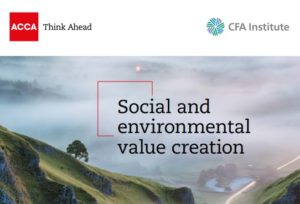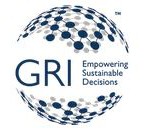
International and EU experts discussed the contribution of corporate governance and reporting to the Green New Deal and called for global and concerted action at a joint ACCA-IIRC-CFA Institute conference in Brussels. Sustainability and a Green New Deal are at the heart of the European Commission’s forthcoming programme. This demands unprecedented modernisation and change from all parts of our economies, globally. Sustainable finance can play a fundamental role in this, and businesses and their finance teams are also increasingly called upon to monitor and report on social and environmental risks and improve business models to redefine how they create value.
To shine a much needed spotlight on what has been achieved and the work ahead, ACCA (the Association of Chartered Certified Accountants), the IIRC and CFA Institute organised a lively discussion on the crucial role of corporate governance and reporting, and how integration and impact are the way forward. Also launched at this Brussels-based event was the joint ACCA-CFA Institute report called Social and environmental value creation, which examines the role that business and finance is fulfilling in meeting these new challenges.
Jonathan Labrey, Chief Strategy Officer at the IIRC opened the conference saying:”Perhaps the most striking trend of all is the change within mainstream capital market thinking – investors, business and regulators. There is a much greater focus on putting societal interests at the heart of the purpose of companies – in corporate governance codes and in market practice. And a genuine and much needed realignment of corporate purpose towards the needs of broader society will influence reporting and governance and achieve higher performance and increased trust which will benefit all parts of the value chain”.
Heidi Hautala, MEP and Vice President of the European Parliament, in her keynote address recalled that sustainability is an absolute necessity for everyone and circular economy must be a part of this discussion.
“The European Parliament has declared the climate emergency. This emergency means that it is necessary to roll up our sleeves and get to work – we need to transform our economies from resource-consuming into resource-efficient. This means that we must re-think the value creation – how it can be done in a socially and environmentally-sustainable way. It is not enough what legislators or companies have done so far – we must be more ambitious”, Heidi Hautala added.
The new Commission is expected to put forward a proposal to revise the Non-Financial Reporting Directive, which may touch on issues such as its scope, potential stronger requirements for assurance of the sustainability information, where it should be reported; materiality; comparability; coherence and digitalisation.
Most of the speakers agreed that transformational – or systemic – change is needed, but this will only happen through taking actions or changing behaviour. Improving sustainability reporting will involve responding to challenges related to availability and comparability of data and metrics, require clarifying sustainable finance definitions and face methodological issues associated with scenario analysis and stress testing. Corporate reporting and accounting also urgently needs to factor other environmental factors than climate change like biodiversity, and better disclosure requires moving to due diligence reporting models. At the moment we are shifting risks from one sector to another, but we need to look at the total environmental impact, and to have in place: Governance – Risk Management – Meaningful reporting and Measurement – set targets – and plan/ implement actions.
Jimmy Greer, head of sustainability at ACCA, moderated the first panel, saying: “The ACCA-CFA Institute report demonstrates that there are many concrete ways for finance teams to engage with a more multi-dimensional approach to value creation . The SDGs are a great example of sophistication and maturation in this world and we are starting to see that people are thinking of them in more systemic way. This progress is really encouraging”.
It was suggested that stepping up action to promote standardised environmental management accounting building on emerging corporate natural capital accounting methods is a key priority for delivering the EU Green Deal ambitions. It was also stressed that we need investment, we need investors, but above all active owners, and no matter what action we take, it will not make a difference if we don’t consider pricing externalities. It was also reminded that companies in Europe already do a lot, and this should be acknowledged by policy-makers and stakeholders.
Kazim Razvi, Director, Financial Reporting Policy, CFA Institute , also recalled that there is an education side to things – different terms mean something else in different regions. He explained: “The CFA Institute will be publishing pieces on ESG information and how investors are using it. The most important area is the educational side – how this data is used and incorporated in analysis.”
Alan Johnson, Deputy President of IFAC concluded : “Europe may be an old, and even an ageing continent – but it’s driving innovation, leading on social and economic integration, and most importantly on sustainability. It can go forward fast, but the reality is that we must work together across the world. Regulatory fragmentation is a very big issue, with high costs to both business and society. Professional accounting organisations should be making the case for collaboration in their jurisdictions. It is our job to advocate and convince all countries that we can win this battle only by working together collaboratively, in order to ensure we make this planet a more hospitable and safer place for future generations”.



